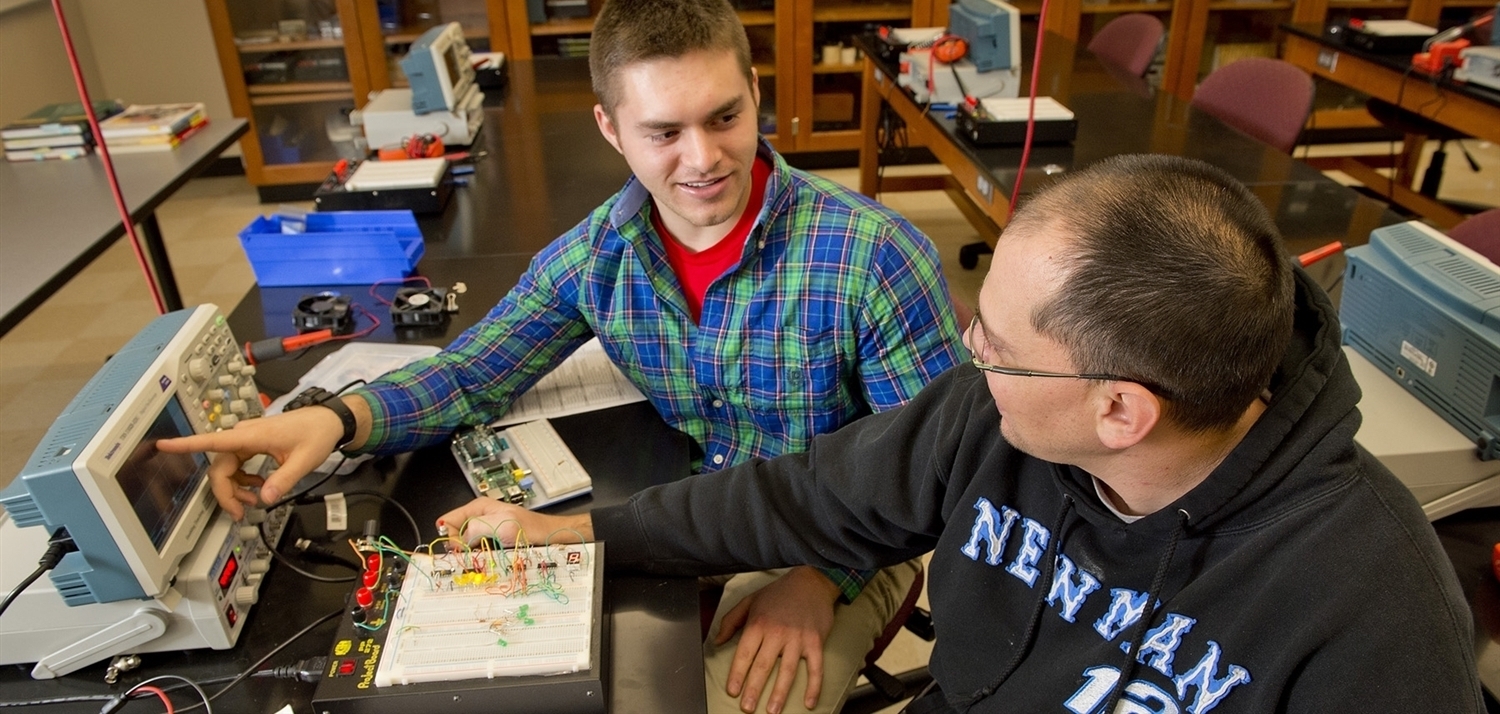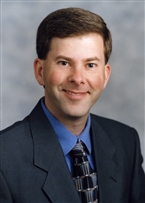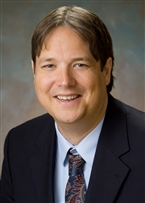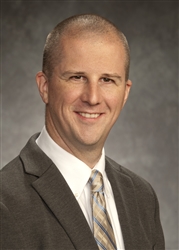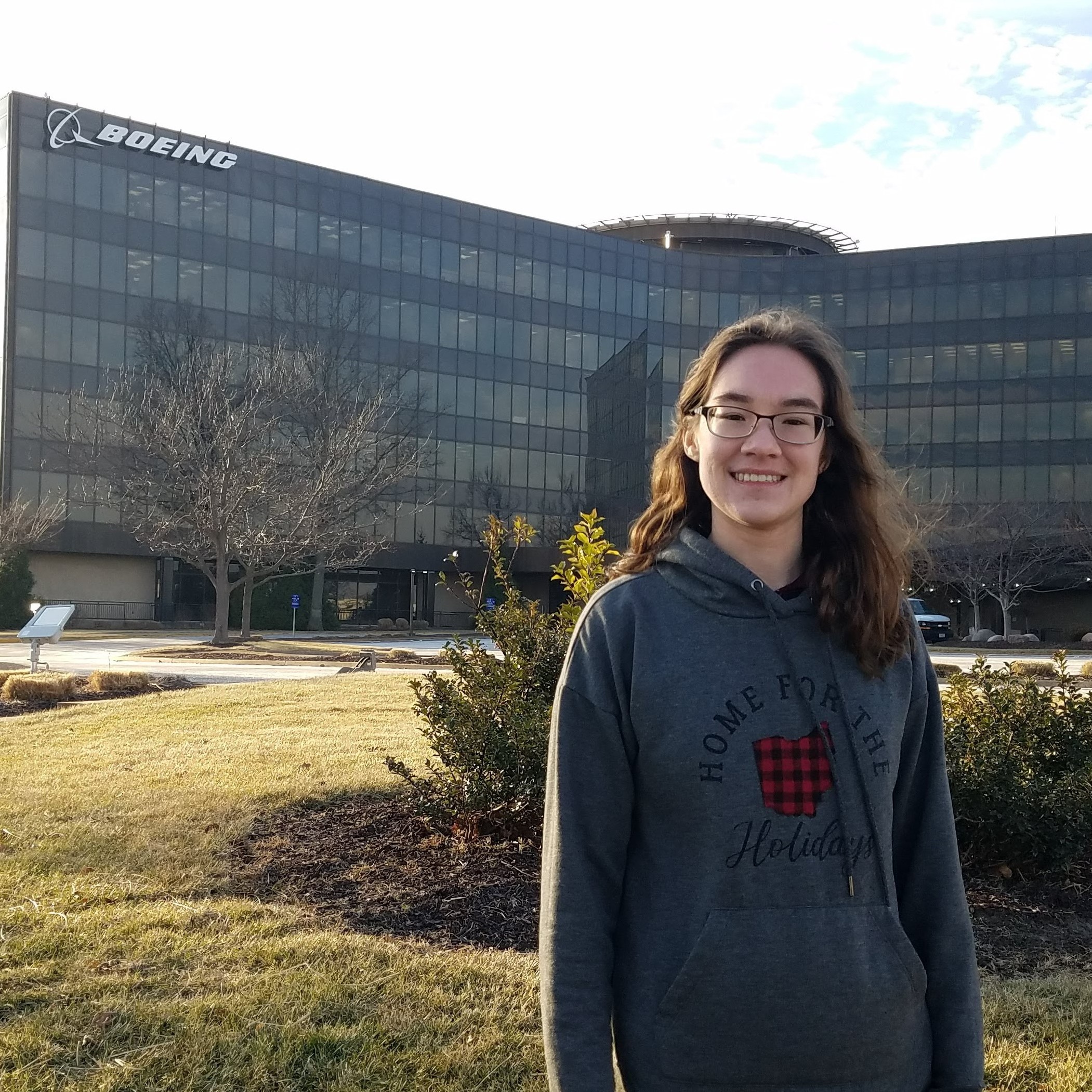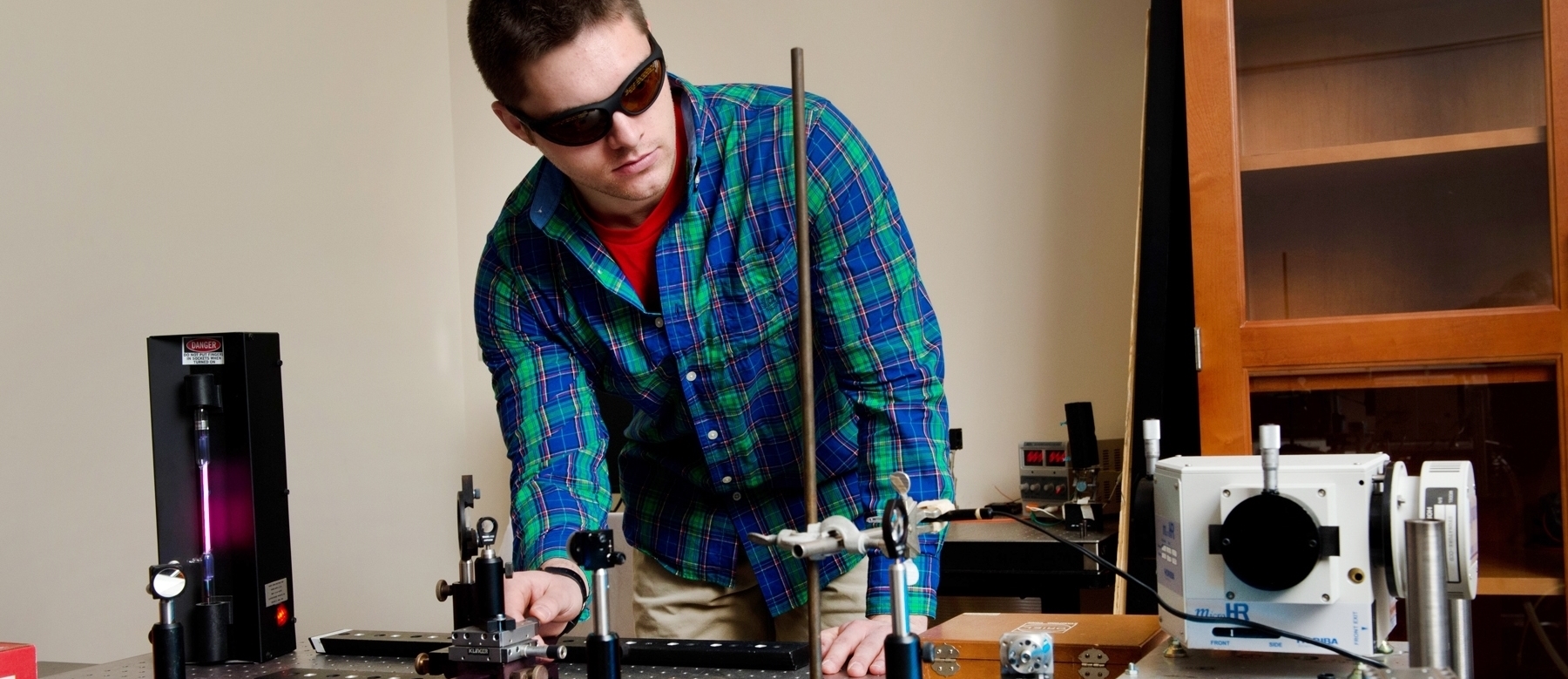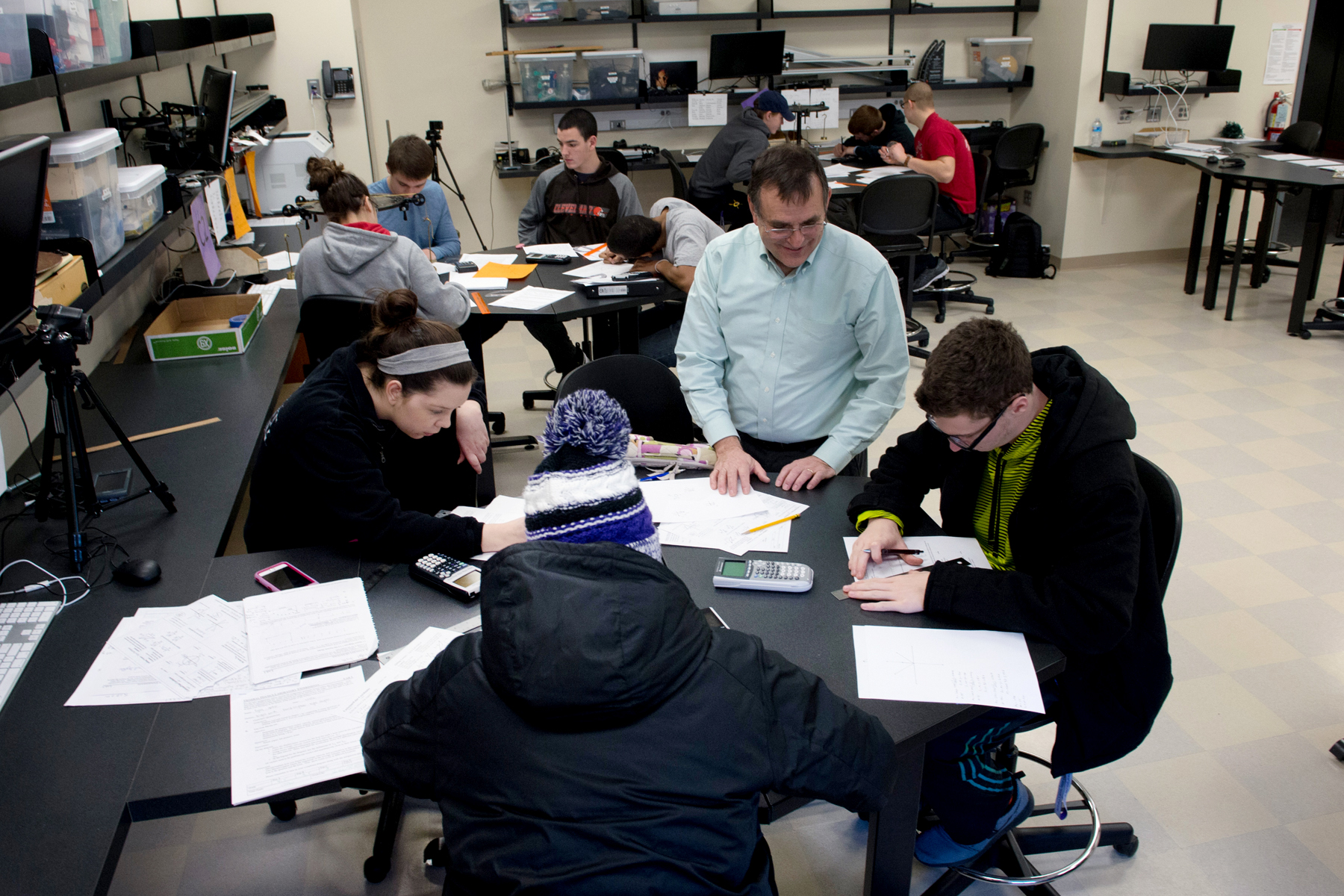Bachelor of Science in Physics Degree
Strive for excellence and pursue a broad understanding of the material of our existence—from the subatomic to universal scale. The Bachelor of Science in Physics at the University of Mount Union draws together theory, curiosity, and hands-on discovery.
Blend Established Knowledge, Experimentation, and Exploration
Develop broad fundamental knowledge in calculus, scientific modeling, modern and medical physics, and your choice of specializations from the physics core: thermodynamics, electromagnetic theory, quantum mechanics, astrophysics, particle physics, and more.
In our state-of-the-art Bracy Hall laboratories, engage in intensive applied learning in observational astronomy, electronics, and data analysis. Gain interdisciplinary fluency across science, engineering, mathematics, and computer science as they relate to physics, and prepare for a broad variety of professional roles and graduate programs.
Physics Major Quick Facts
- 58 physics program credits
- 32 credits for the Integrative Core
- 2 student organizations for physics majors
- REU research experience sponsored by the National Science Foundation
Learn More About the Physics Major
Earn your Bachelor of Science in Physics with the support of Mount Union’s unmatched technical facilities, research opportunities, and hands-on learning experiences.
-
Curriculum
Physics CurriculumStudy physics with integrity as you examine general, classical, and modern physics. In hands-on labs and field experiences, interrogate quantum mechanics, electronics, solid-state physics, electronics, and astrophysics. Encounter the vast and interdisciplinary nature of science, math, and engineering in theory- and concept-based courses like:
- Modern and Medical Physics
- Linear Algebra and Differential Equations
- Electromagnetic Theory
- Analytical Mechanics
- Condensed Matter Physics
- Atomic, Nuclear, and Particle Physics
Most students even earn a simultaneous minor in mathematics through the required extra-departmental courses, and you may choose to double major in areas like mechanical engineering, math, music, business, writing, or computer science.
The physics degree program delivers flexibility in alignment with your professional goals, with experiential elective options in engineering, data acquisition, and astronomy. Our graduates go on to top-tier graduate programs in physics, engineering, and astrophysics, and they work as engineers, technicians, chemists, and technical writers.
-
Learning Objectives
Physics Learning ObjectivesEngage in hands-on learning throughout the bachelor’s in physics program as you prepare for invigorating graduate programs and careers in physics, astronomy, astrophysics, engineering, data science, and more. In Mount Union’s physics degree, you will:
Learn to Write
Write scientifically, use graphs/tables/images appropriately, and generate professional materials utilizing a variety of programs.
Learn to Speak
Present scientific concepts to your peers and professors, design posters, and lead classroom discussions.
Learn to Think
Think critically about the universe and how to apply simple concepts to complex situations.
Learn to Solve
Examine concepts to develop your problem-solving skills in real-world and theoretical applications.
Learn to Create
Choose research projects related to your interests and aspirations, and build things that allow you to explore, play, and learn.
Learn to Learn
Develop your study and time management skills—many physics majors found high school easy and never learned to study, so our faculty can help you facilitate new techniques.
Learn to Help
Apply for jobs in the department as a teaching/learning assistant or tutor in our general physics, astronomy, how things work, and electronics labs.
-
Experiential Learning
Physics Experiential LearningSeize opportunities to rise above the expectations of a standard undergraduate program through extensive hands-on learning experiences. At Mount Union, we understand that most students learn better by doing rather than listening to traditional lectures. That’s why we teach in laboratories, plan field excursions, facilitate student organizations, and guide you to network with real-world experts—so you can experience physics, not just learn to complete abstract problems.
Advance your academic and professional credibility even further in an internship or through participation in the Research Experience for Undergraduates (REU) programs sponsored by the National Science Foundation. These one-of-a-kind opportunities set your resume and graduate program applications apart.
Focusing on experiential learning empowers you to gain authentic experiences and tackle the complexities of the physical world—skills that are essential for graduate physics degree programs, high-level career opportunities, and bringing your learning to life.
Bracy HallDive into active learning and push yourself to discover in our state-of-the-art, $23 million natural sciences faculty. We consistently renovate and upgrade our labs to ensure you gain experience using the latest and greatest industry-grade equipment. Take on tenacious challenges in our dedicated electronics lab, machine shop, advanced lab space, and rooftop observatory, making use of high-energy lasers, precision spectrometers, optical and radio telescopes, and more. Bracy Hall: truly unlike any other facility for undergraduate students!
-
Careers
Physics CareersSoar in a dynamic field driven by exploration and innovation. Governments and corporations fund researchers at the forefront of physics, astronomy, energy, and advanced manufacturing discoveries. Learn more about statistics, information, and opportunities for physics and astronomy degree holders from the American Institute of Physics (AIP), which “advances, promotes, and serves the physical sciences for the benefit of humanity.”
Over the past decade, nearly all of our graduates have gone on to pursue their chosen careers via professional avenues and graduate, postgraduate, and postdoctoral studies. The extensive experiential learning at Mount Union positions you to thrive in laboratories, symposia, and shareholder meetings around the world.
Alumni Employers- Dalton local schools
- Enterprise Europe Network Thüringen
- Ball Aerospace & Technologies Inc.
- Southwest Research
- Otterbein College
- University of Florida
Alumni Graduate Schools- Yale University
- The University of Texas at San Antonio
- Case Western Reserve University
- Indiana University
- University of Kentucky
- The University of Arizona
- University of California - Davis
Common Career Fields- Astronomy
- Astrophysics
- Engineering
- Applied physics
- Education
Recent Grad SchoolsYale University
University of Texas – San Antonio
Case Western Reserve University
Indiana University
University of Kentucky
University of Arizona
University of California - DavisCommon Career Fields
Astronomy
Astrophysics
Engineering
Applied physics
Education
